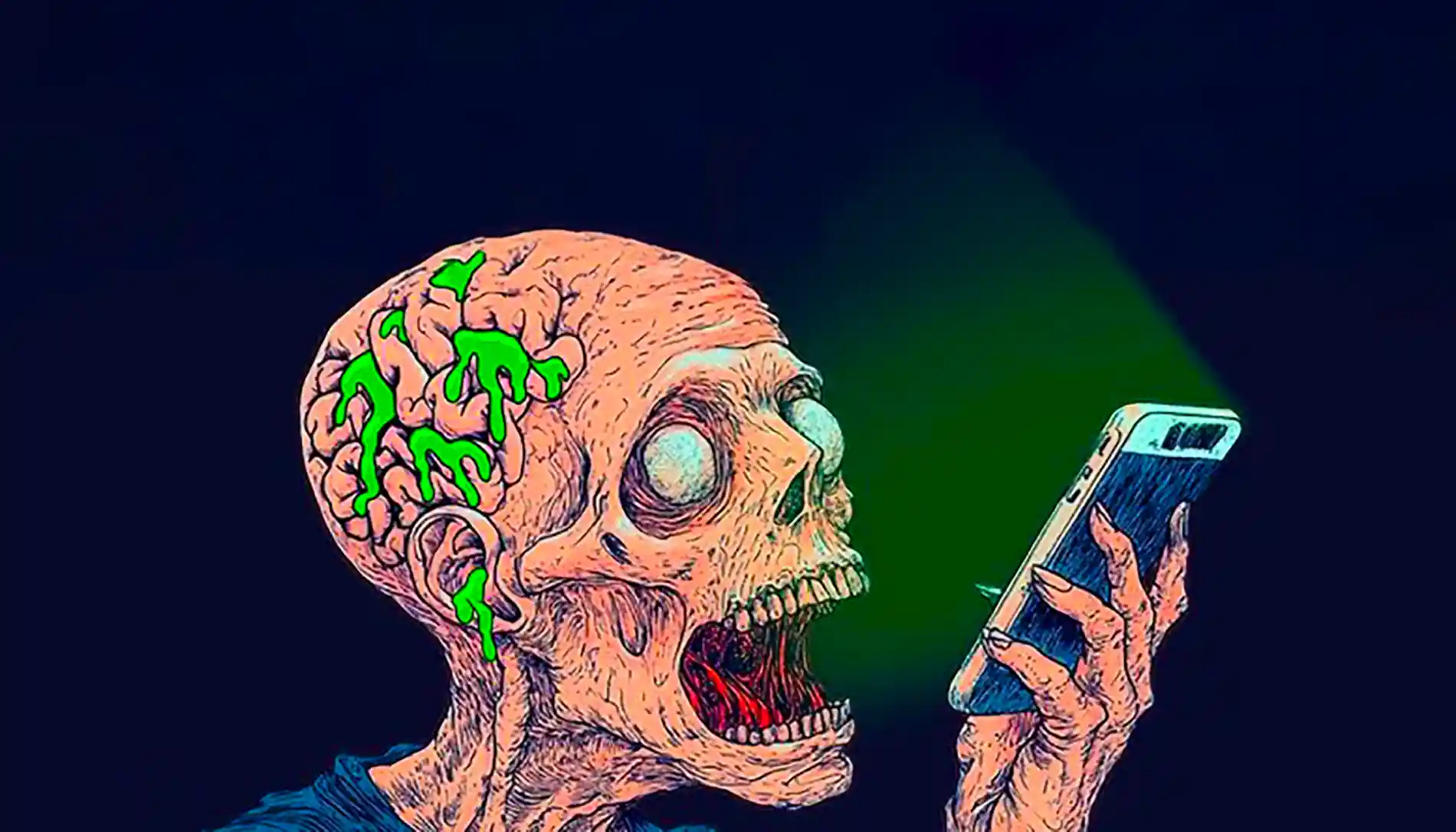Brain Rot: The Digital Age's Silent Epidemic
In today's hyper-connected world, we're constantly bombarded with information. From social media feeds to endless streaming services, our brains are constantly engaged, often with content that's designed to be addictive and attention-grabbing. But what happens when this constant stimulation starts to take a toll? Enter "brain rot," a term that describes the perceived deterioration of mental or intellectual state, often attributed to excessive consumption of trivial or unchallenging online content.
What Exactly is Brain Rot?

While not a formally recognized medical condition, brain rot is a real phenomenon. It's characterized by a decline in cognitive function, including:
Reduced attention span: Finding it difficult to focus on tasks, easily distracted by notifications and the allure of the next shiny object online.
Impaired memory: Struggling to recall information, names, or even recent events.
Difficulty with critical thinking: Struggling to analyze information, evaluate arguments, and form independent opinions.
Decreased creativity: Feeling uninspired, lacking motivation, and unable to generate new ideas.
Emotional volatility: Experiencing increased anxiety, irritability, and even depression.
The Culprits: Endless Scrolling and Mindless Consumption
Social Media: The constant stream of updates, likes, and comments can be highly addictive, leading to hours spent mindlessly scrolling.
Short-Form Video Platforms: Platforms like TikTok and YouTube Shorts are designed to keep you hooked with rapid cuts, catchy music, and addictive algorithms.
Gaming: While gaming can be a healthy form of entertainment, excessive gaming can lead to addiction, social isolation, and cognitive decline.
News Overload: Constant exposure to negative news can lead to anxiety, stress, and a sense of hopelessness.
The Impact of Brain Rot

The consequences of brain rot extend beyond individual cognitive decline. It can impact:
Education: Students may struggle to focus in class, complete assignments, and retain information.
Work: Employees may experience decreased productivity, difficulty concentrating, and struggles with problem-solving.
Relationships: Constant screen time can lead to social isolation, decreased empathy, and difficulty connecting with others.
Mental Health: Brain rot can contribute to anxiety, depression, and even burnout.
Breaking Free from the Brain Rot Cycle
While the digital world offers numerous benefits, it's crucial to cultivate a healthy relationship with technology. Here are some strategies to combat brain rot:
Mindful Consumption:
Curate your feeds: Unfollow accounts that trigger negative emotions or promote low-quality content.
Set time limits: Use built-in features or third-party apps to limit your screen time.
Practice mindful scrolling: Be intentional about what you consume and why.
Engage in Meaningful Activities:
Read books: Immerse yourself in rich narratives and complex ideas.
Learn a new skill: Explore hobbies that challenge your mind and creativity.
Connect with nature: Spend time outdoors, disconnect from technology, and reconnect with the natural world.
Engage in social interactions: Spend quality time with loved ones, participate in community events, and cultivate meaningful relationships.
Prioritize Mental Well-being:
Practice mindfulness and meditation: Cultivate self-awareness and reduce stress.
Get enough sleep: Ensure adequate rest to allow your brain to recover and consolidate memories.
Engage in regular exercise: Physical activity improves cognitive function and reduces stress.
Educate Yourself:
Learn about the impact of technology on the brain: Understand how different types of content affect your cognitive function.
Develop critical thinking skills: Learn to evaluate information, identify biases, and form your own informed opinions.
A Call to Action
Brain rot is a growing concern in our increasingly digital world. By understanding its causes and consequences, we can take proactive steps to protect our cognitive health. By cultivating mindful habits, engaging in meaningful activities, and prioritizing our well-being, we can navigate the digital landscape with intention and reclaim our mental focus.
